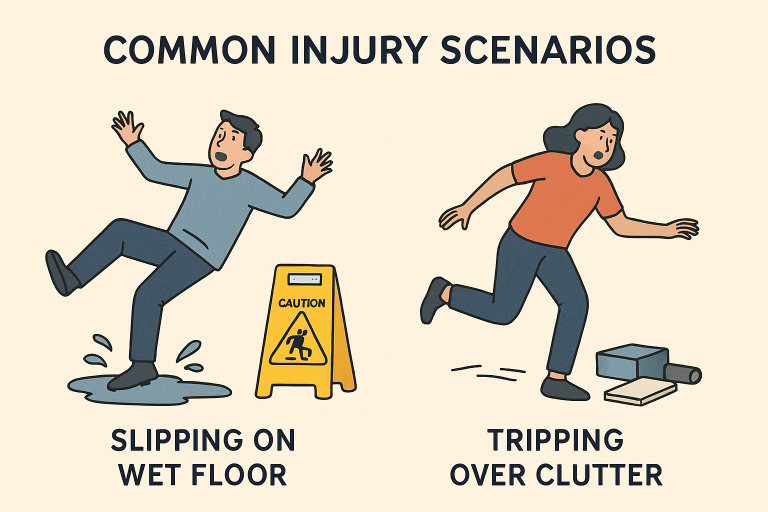1. Consult a lawyer to understand the divorce laws in your country.
A qualified lawyer will be able to professionally and objectively assess the situation and advise on:
- any potential legal issues that may arise during the litigation;
- any documentation that needs to be filled out during the process, such as a spousal support agreement or child custody agreement;
- different legal options available when dividing assets or debts between both parties.
Consulting with an attorney is critical to understanding how to get a divorce and keep everything as you plan your own divorce in Pierce county in 2023. The lawyer will be able to guarantee the maximum divorce result for both parties involved in the process.
2. Collect all financial documents and records related to your marriage.
- The list of required documents may include: bank statements;
- payment receipts;
- income declarations;
- investment reports.
- a list of all debts that were received during the marriage, as well as any other obligations;
- and any other financial documents.
These documents will be used by both partners when dividing joint property during the divorce process.
How to divorce your wife and keep everything? it is important to know your rights and responsibilities regarding spousal support and alimony payments. It is worth getting quality advice from a lawyer who can provide more information on these issues before entering into negotiations with your partner. If children are involved in the divorce process, it is important to thoroughly study all issues related to child custody and child support. This will ensure that their best interests are taken into account during the process.
3. Make a budget and plan for life after divorce.

Detailed financial planning will help determine the amount of money to cover such expenses as:
- housing;
- food;
- utilities;
- transportation costs;
- unforeseen costs;
- future savings.
Before the final signing of the documents, couples need to discuss certain terms of the divorce:
- who will keep the family home;
- who will be responsible for paying joint debts;
- who will receive alimony for spousal support;
- much more.
Discussing and resolving these issues in advance will help prevent future financial disputes. With careful planning and preparation, a post-divorce couple can preserve what matters most in the long run.\
| Step | Description |
| 1 | Consider counseling or therapy to explore the possibility of reconciliation. |
| 2 | Research divorce laws in your jurisdiction to understand the legal requirements and processes. |
| 3 | Consult with a divorce attorney to get professional advice and guidance on your specific situation. |
| 4 | Determine the grounds for divorce, such as irreconcilable differences or fault-based reasons. |
| 5 | Gather and organize all relevant documents, including financial records, assets, and debts. |
| 6 | Make decisions regarding child custody, visitation, and child support if applicable. |
| 7 | Attempt mediation or alternative dispute resolution methods to reach an agreement with your spouse. |
| 8 | File a divorce petition or complaint with the appropriate court in your jurisdiction. |
| 9 | Serve the divorce papers to your spouse according to the legal requirements. |
| 10 | Respond to any counter-petition or legal filings from your spouse, if applicable. |
| 11 | Exchange information and documentation with your spouse through the discovery process. |
| 12 | Negotiate and finalize a settlement agreement, addressing property division and support matters. |
| 13 | Attend court hearings, if necessary, and comply with any court orders or judgments. |
| 14 | Obtain a divorce decree or judgment from the court, officially terminating the marriage. |
| 15 | Update legal documents, accounts, and personal records to reflect your new marital status. |
4. Negotiate a fair settlement with your partner.
When parting, it is worth discussing with your partner a number of important things, both material and non-material. Example:
- property;
- investments;
- pension accounts;
- insurance policies;
- vehicles;
- bank accounts;
- payment of outstanding debts;
- house maintenance, etc.
Once this list is made, it’s important to have a frank discussion with your partner about what each of you feels is fair and equal.
In addition to property division and debt responsibility, it is important to consider child support and custody during settlement negotiations. It is necessary to determine who will have primary physical custody of the children. It is also worth discussing the amount of alimony that should be paid. Depending on the laws of your state or jurisdiction, there may be other issues that need to be addressed, such as medical or educational expenses. A planned and proper dialogue with your former partner about these issues will help you to be sure that both parties get a fair result from the divorce process.
5. Make sure all assets are properly divided and documented in the settlement agreement.
An experienced lawyer can help you navigate the legal process. He will advise you on your rights and all important points related to divorce. Thanks to the advice of specialists, you will be able to make sure that the settlement agreement is fair and equal for both parties. Also, professional consultation guarantees a fair division of property between you and your partner. It is quite important to properly document all assets in the settlement agreement. This includes:
- any savings accounts;
- investments;
- real estate;
- business interests;
- vehicles;
- other valuable things or assets that were acquired during the marriage;
- any debts or obligations;
Thanks to this, each party will have a complete picture of the financial situation.
<iframe width=”560″ height=”315″ src=”https://www.youtube.com/embed/kts485UTJwk” title=”YouTube video player” frameborder=”0″ allow=”accelerometer; autoplay; clipboard-write; encrypted-media; gyroscope; picture-in-picture; web-share” allowfullscreen></iframe>
If possible, it is necessary to agree on these issues with the partner out of court. It may not be easy, depending on your relationship, but if successful, you will save time and money on court costs. If it is not possible to agree on the division of property without a trial, it is important to make sure that all necessary documents and financial records are collected and prepared for participation in mediation or court hearings. These steps ensure that both parties receive their fair share of the property in the divorce and keep everything according to the settlement agreement.
6. File the necessary documents with the court to finalize the divorce.

Each state has its own unique set of laws governing divorce. Be sure to get professional advice from a lawyer in your area to make sure you meet all the requirements. If children are involved in the divorce, it is worth preparing additional documents for concluding custody and support agreements.
After all the documents are submitted to the court, they must be reviewed and approved by the judge. This is the final stage of divorce. The judge reviews each document to ensure that all legal requirements are met and that both parties agree to the terms of the agreement. After that, the judge approves the documents and both parties receive a final divorce decree. This document officially ends the marriage. Following all the rules of this process will ensure that you know how to divorce your husband and keep everything.

























































































































